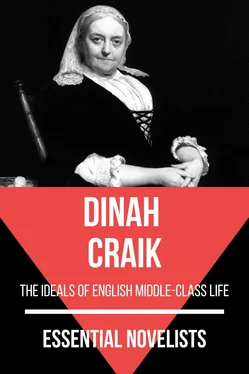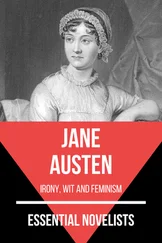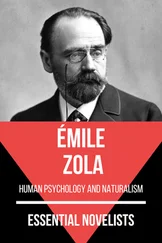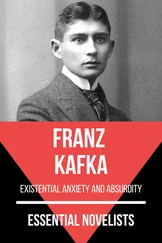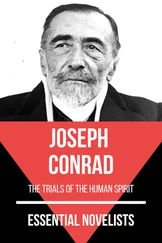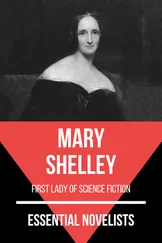For the rest, John was decidedly like the “David” whose name I still gave him now and then —“a goodly person;” tall, well-built, and strong. “The glory of a young man is his strength;” and so I used often to think, when I looked at him. He always dressed with extreme simplicity; generally in grey, he was fond of grey; and in something of our Quaker fashion. On this day, I remember, I noticed an especial carefulness of attire, at his age neither unnatural nor unbecoming. His well-fitting coat and long-flapped vest, garnished with the snowiest of lawn frills and ruffles; his knee-breeches, black silk hose, and shoes adorned with the largest and brightest of steel buckles, made up a costume, which, quaint as it would now appear, still is, to my mind, the most suitable and graceful that a young man can wear. I never see any young men now who come at all near the picture which still remains in my mind’s eye of John Halifax as he looked that day.
Once, with the natural sensitiveness of youth, especially of youth that has struggled up through so many opposing circumstances as his had done, he noticed my glance.
“Anything amiss about me, Phineas? You see I am not much used to holidays and holiday clothes.”
“I have nothing to say against either you or your clothes,” replied I, smiling.
“That’s all right; I beg to state, it is entirely in honour of you and of Enderley that I have slipped off my tan-yard husk, and put on the gentleman.”
“You couldn’t do that, John. You couldn’t put on what you were born with.”
He laughed — but I think he was pleased.
We had now come into a hilly region. John leaped out and gained the top of the steep road long before the post-chaise did. I watched him standing, balancing in his hands the riding-whip which had replaced the everlasting rose-switch, or willow-wand, of his boyhood. His figure was outlined sharply against the sky, his head thrown backward a little, as he gazed, evidently with the keenest zest, on the breezy flat before him. His hair — a little darker than it used to be, but of the true Saxon colour still, and curly as ever — was blown about by the wind, under his broad hat. His whole appearance was full of life, health, energy, and enjoyment.
I thought any father might have been proud of such a son, any sister of such a brother, any young girl of such a lover. Ay, that last tie, the only one of the three that was possible to him — I wondered how long it would be before times changed, and I ceased to be the only one who was proud of him.
We drove on a little further, and came to the chief landmark of the high moorland — a quaint hostelry, called the “Bear.” Bruin swung aloft pole in hand, brown and fierce, on an old-fashioned sign, as he and his progenitors had probably swung for two centuries or more.
“Is this Enderley?” I asked.
“Not quite, but near it. You never saw the sea? Well, from this point I can show you something very like it. Do you see that gleaming bit in the landscape far away? That’s water — that’s our very own Severn, swelled to an estuary. But you must imagine the estuary — you can only get that tiny peep of water, glittering like a great diamond that some young Titaness has flung out of her necklace down among the hills.”
“David, you are actually growing poetical.”
“Am I? Well, I do feel rather strange today — crazy like; a high wind always sends me half crazy with delight. Did you ever feel such a breeze? And there’s something so gloriously free in this high level common — as flat as if my Titaness had found a little Mont Blanc, and amused herself with patting it down like a dough-cake.”
“A very culinary goddess.”
“Yes! but a goddess after all. And her dough-cake, her mushroom, her flattened Mont Blanc, is very fine. What a broad green sweep — nothing but sky and common, common and sky. This is Enderley Flat. We shall come to its edge soon, where it drops abruptly into such a pretty valley. There, look down — that’s the church. We are on a level with the top of its tower. Take care, my lad,”— to the post-boy, who was crossing with difficulty the literally “pathless waste.”—“Don’t lurch us into the quarry-pits, or topple us at once down the slope, where we shall roll over and over — facilis descensus Averni — and lodge in Mrs. Tod’s garden hedge.”
“Mrs. Tod would feel flattered if she knew Latin. You don’t look upon our future habitation as a sort of Avernus?”
John laughed merrily. “No, as I told you before, I like Enderley Hill. I can’t tell why, but I like it. It seems as if I had known the place before. I feel as if we were going to have great happiness here.”
And as he spoke, his unwonted buoyancy softened into a quietness of manner more befitting that word “happiness.” Strange word! hardly in my vocabulary. Yet, when he uttered it, I seemed to understand it and to be content.
We wound a little way down the slope, and came in front of Rose Cottage. It was well named. I never in my life had seen such a bush of bloom. They hung in clusters — those roses — a dozen in a group; pressing their pinky cheeks together in a mass of family fragrance, pushing in at the parlour window, climbing up even to the very attic. There was a yellow jasmine over the porch at one front door, and a woodbine at the other; the cottage had two entrances, each distinct. But the general impression it gave, both as to sight and scent, was of roses — nothing but roses.
“How are you, Mrs. Tod?” as a comely, middle-aged body appeared at the right-hand doorway, dressed sprucely in one of those things Jael called a “coat and jacket,” likewise a red calamanco petticoat tucked up at the pocket-holes.
“I be pretty fair, sir — be you the same? The children ha’ not forgotten you — you see, Mr. Halifax.”
“So much the better!” and he patted two or three little white heads, and tossed the youngest high up in the air. It looked very strange to see John with a child in his arms.
“Don’t ‘ee make more noise than ‘ee can help, my lad,” the good woman said to our post-boy, “because, sir, the sick gentleman bean’t so well again today.”
“I am sorry for it. We would not have driven up to the door had we known. Which is his room?”
Mrs. Tod pointed to a window — not on our side of the house, but the other. A hand was just closing the casement and pulling down the blind — a hand which, in the momentary glimpse we had of it, seemed less like a man’s than a woman’s.
When we were settled in the parlour John noticed this fact.
“It was the wife, most likely. Poor thing! how hard to be shut up indoors on such a summer evening as this!”
It did seem a sad sight — that closed window, outside which was the fresh, balmy air, the sunset, and the roses.
“And how do you like Enderley?” asked John, when, tea being over, I lay and rested, while he sat leaning his elbow on the window-sill, and his cheek against a bunch of those ever-intruding, inquisitive roses.
“It is very, very pretty, and so comfortable — almost like home.”
“I feel as if it were home,” John said, half to himself. “Do you know, I can hardly believe that I have only seen this place once before; it is so familiar. I seem to know quite well that slope of common before the door, with its black dots of furze-bushes. And that wood below; what a clear line its top makes against the yellow sky! There, that high ground to the right; it’s all dusky now, but it is such a view by daylight. And between it and Enderley is the prettiest valley, where the road slopes down just under those chestnut-trees.”
“How well you seem to know the place already.”
“As I tell you, I like it. I hardly ever felt so content before. We will have a happy time, Phineas.”
Читать дальше
